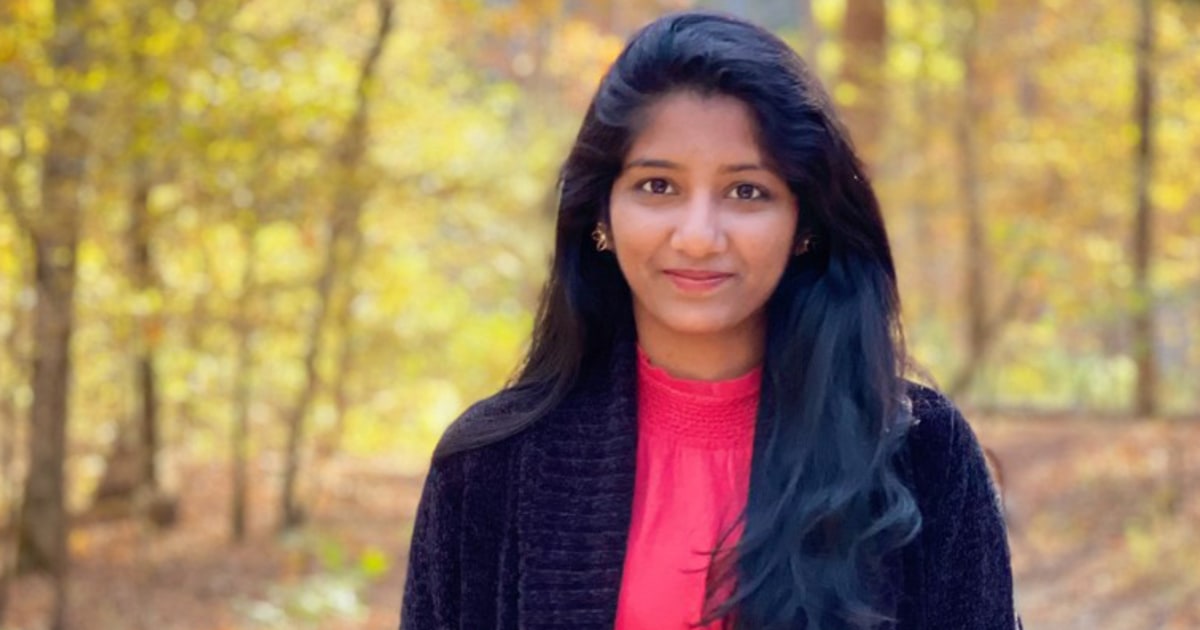The body of Aishwarya Thatikonda, one of eight people killed in the mall shooting last weekend in Allen, Texas, has been flown to her family in India and cremated.
But as South Asians from Texas to Telangana, India, mourn the loss of the 26-year-old, they are also faced with a funeral process that defies convention: sending someone so young who died so far from home.
For someone like Thatikonda who died across the ocean from her immediate family, returning the body to its home country is the first step in a traditional Hindu funeral, and is essential to ensure the last rites can be performed.
“The purpose of the funeral ceremony is to honor the body that housed the soul in this birth,” said Pandit Chandra Mouli, an Allen-based Hindu priest. «It also includes prayers for the soul until it reaches its next birth.»
Thatikonda, a project engineer who grew up in the southern Indian city of Hyderabad, was at the mall on May 6 shopping for an outfit for her 27th birthday, which would have been May 18.. After graduating with his master’s degree from Eastern Michigan University in 2020, according to his LinkedIn profile, he moved to Texas and began working at a contracting company.
Messages from NBC News to his father, brother, cousin and other contacts were not returned.
According to Ashok Kholla, treasurer of the nonprofit Telugu Association of North America, which helped organize the effort to send Thatikonda’s remains home, the family opted for a traditional Hindu ceremony.
This normally includes bathing and dressing the body, administering last rites, cremation, a 13-day mourning period, and spreading the ashes over a body of water.
In any family, religious or not, having the body of a loved one is closure, Mouli said. But for Hindu funerals, the body plays a particularly important role. Typically, cremations are done as soon as possible, often within a day or two of death, said Madhu Bommineni, president of the American Telugu Association. It took several days for Thatikonda’s body to begin the journey home, so the mourning process took longer than usual.
«In Hindu belief, the soul receives a human body as a gift,» Mouli said. “A human birth is considered a very rare gift. Once the purpose of the human body is completed, the body returns to where it came from and the soul continues on the journey.
Traditionally, the eldest son of the deceased performs the last rites, leading the family in prayer. If the person did not have children, that role usually falls to the spouse, Bommineni said. But for someone as young as Thatikonda, who was neither married nor had children, it is unclear who performs the last rites.
«Since she’s a young woman, one of her family members, most likely her father, will take care of that,» Bommineni said. “It’s hard to think about that. They would never expect such things to happen to her children. …Not knowing what happened to her, and then knowing that she passed away, and then all this weight of bringing her back home. It’s not easy for anyone.»
Mouli says that these processes exist to ensure the safe passage of the soul to its next life, its new body. The ashes are scattered in water to release the soul so that the body, which forms in fluid in the womb, can complete the cycle where it began, he said.
“The human body is made of the five elements, and once the soul leaves the body, we give the body back to the elements,” he said.
Identification of his body was initially delayed «because his face was mutilated, totally unrecognizable,» his boss and close friend Srinivas Chaluvadi told NBC News on Monday. “It is a pain that I have never experienced. I pray that this situation does not happen to anyone.»
After the shooting, North Texas Telugu community leaders banded together to raise funds to repatriate Thatikonda’s body to India as soon as possible.
“This young woman came from India to go to school, get a better education and seek a better life,” Bommineni said. «And out of the blue, she was at the mall and now her family is grieving the loss of her.»

